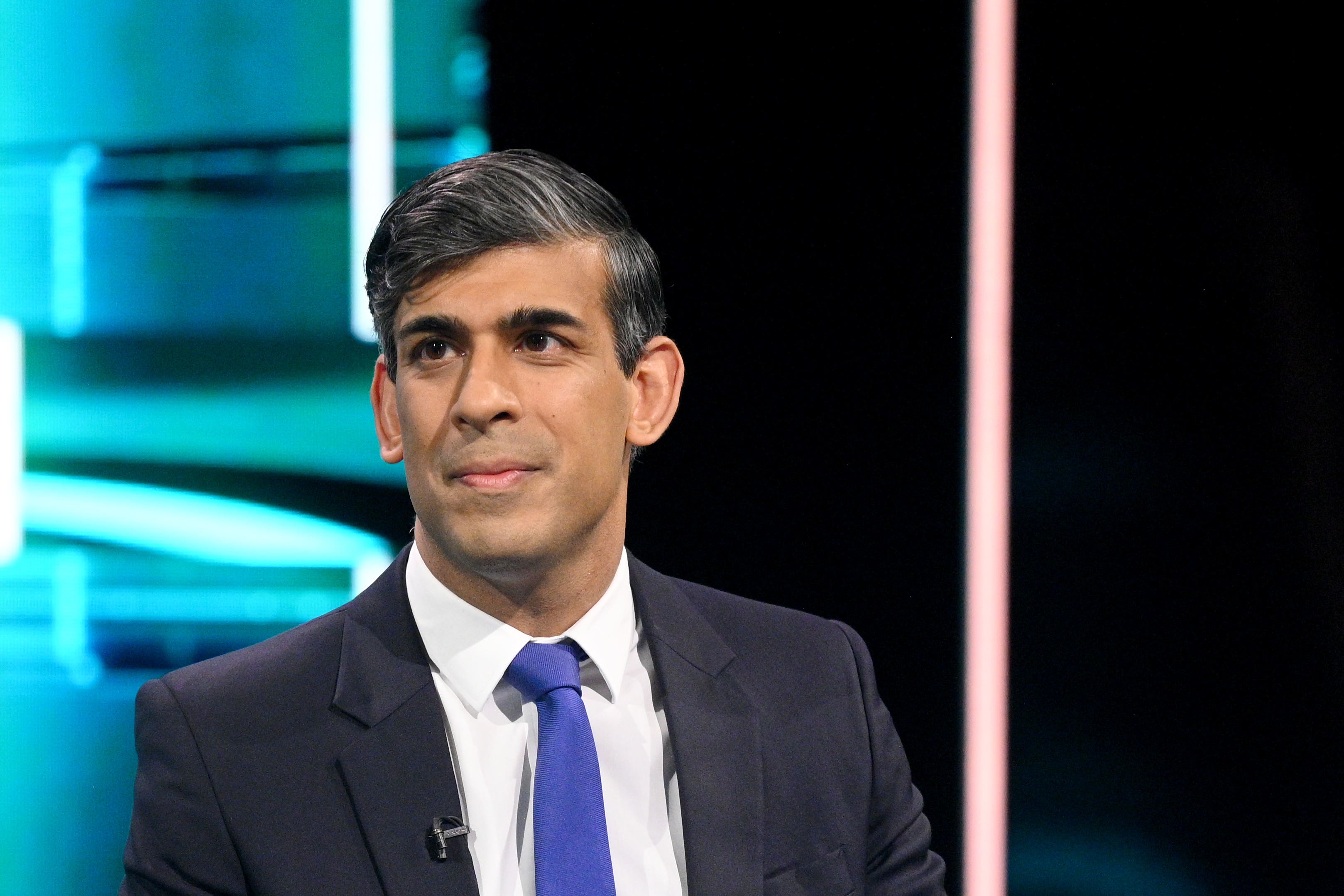The TV debate was the most promising of Sunak’s decisions – but it’s thrown his party into chaos
Editorial: Jeremy Hunt will now have to clarify what legitimacy the document that the PM passed off as being provided by the Treasury – accusing Labour of hiking household taxes by £2,000 – possesses

In at least one of the snap polls after the ITV leaders’ debate, Rishi Sunak scored a rare victory over Sir Keir Starmer – if only by a narrow margin. It seemed to confirm that, as the underdog with nothing to lose, the prime minister’s pugilistic approach won him the advantage in the Sunak vs Starmer bout.
Neither man struck any knockout blows, but a combination of heckling, impatience and his focus on tax helped Mr Sunak to a victory on points. After weeks of disarray, defections and the disorientation triggered by the return of Nigel Farage, this was encouraging. Mixing metaphors, the Tories – deprived of anything approaching good news for many weeks – grasped at the apparent triumph as a drowning person would cling to a piece of driftwood.
But their relief has been short-lived. First, it seems that Mr Sunak’s combative performance was seen by relatively few people. The viewing figures for the first leaders’ debate were 4.8 million, rather lower than expected and around half of those recorded at the “Cleggmania” debates in 2010. That might be an ominous leading indicator about turnout on 4 July, even if it also suggests that the public may have made their minds up long ago that it’s time for a change.
Second – and much more damagingly – there is the release of a letter from chief Treasury civil servant Sir James Bowler to Darren Jones of Labour. It has all but destroyed Mr Sunak’s central claim, made frequently during the television debate, that Labour’s loans would cost each household some £2,089.
While the constant repetition during the programme and the post-fight analysis helped to highlight the figure, the revelation that the Treasury disowns the claim has robbed it (and the Conservative candidates who’ve been promulgating it) of all credibility. Mr Sunak was wrong to say the figure was independently calculated.
Claire Coutinho was wrong to declare it had been “signed off” by Sir James and the Treasury. Michael Gove will have to try and get the cat back into the bag he claimed it had been released from.
Jeremy Hunt, the chancellor, will have to clarify what legitimacy the document that has been passed off as being provided by the Treasury possesses. He cannot claim, as he has, that those are the figures a Labour government will be presented with on taking office. On the contrary, only some of the figures have been generated by the Treasury – and in any case, they were based on unlikely assumptions laid down by political special advisers and Conservative ministers. Rachel Reeves, the shadow chancellor, and her colleagues will, if appointed, be setting down rather different ones.
Like so much in this election, what must have seemed like a smart initiative to corner Labour and tempt voters back from abstention and Reform UK has proved counterproductive. The announcement in a rainy Downing Street took the initiative, but the drenched optics turned into a damp squib.
A campaign launch event at the Titanic Quarter in Belfast, always an eccentric move, was painfully ironic. It was swiftly followed by an admission that there would be no refugees forcibly deported to Rwanda before polling day – Mr Sunak’s defining mission casually cancelled. The oxymoronic “voluntary but compulsory” national service scheme died the death of public ridicule (and surely alienated younger voters for years to come).
The TV debate challenge, the most promising of Mr Sunak’s decisions, has caused more trouble than it’s worth. So it has now also proved with Mr Hunt’s dodgy dossier on Labour and tax. Labour spokespeople can legitimately accuse the Tories of lying – a serious allegation even at a bitterly contested election – with scarcely a murmur of dissent from anyone else.
But note too, one other disappointment. Despite the fracas and a heartfelt plea by Gus O’Donnell, former cabinet secretary and head of the Treasury, that the practice of making civil servants cost opposition policies for partisan purposes should now cease has not yet been echoed by the politicians themselves.
As Lord O’Donnell observes, with characteristic fairness, both main parties have abused the civil service in this way for decades, especially at election time – and, as he says, they hate doing it. It obviously erodes the impartiality of the civil service and trust in it. Both parties should declare a self-denying ordnance on such activity.
Thus far, neither Mr Hunt (nor, more to the point, Ms Reeves) have so far renounced this abuse of the civil service and waste of taxpayers’ money. Mr Hunt’s dodgy dossier won’t be the last in this dishonourable tradition.
Join our commenting forum
Join thought-provoking conversations, follow other Independent readers and see their replies
Comments